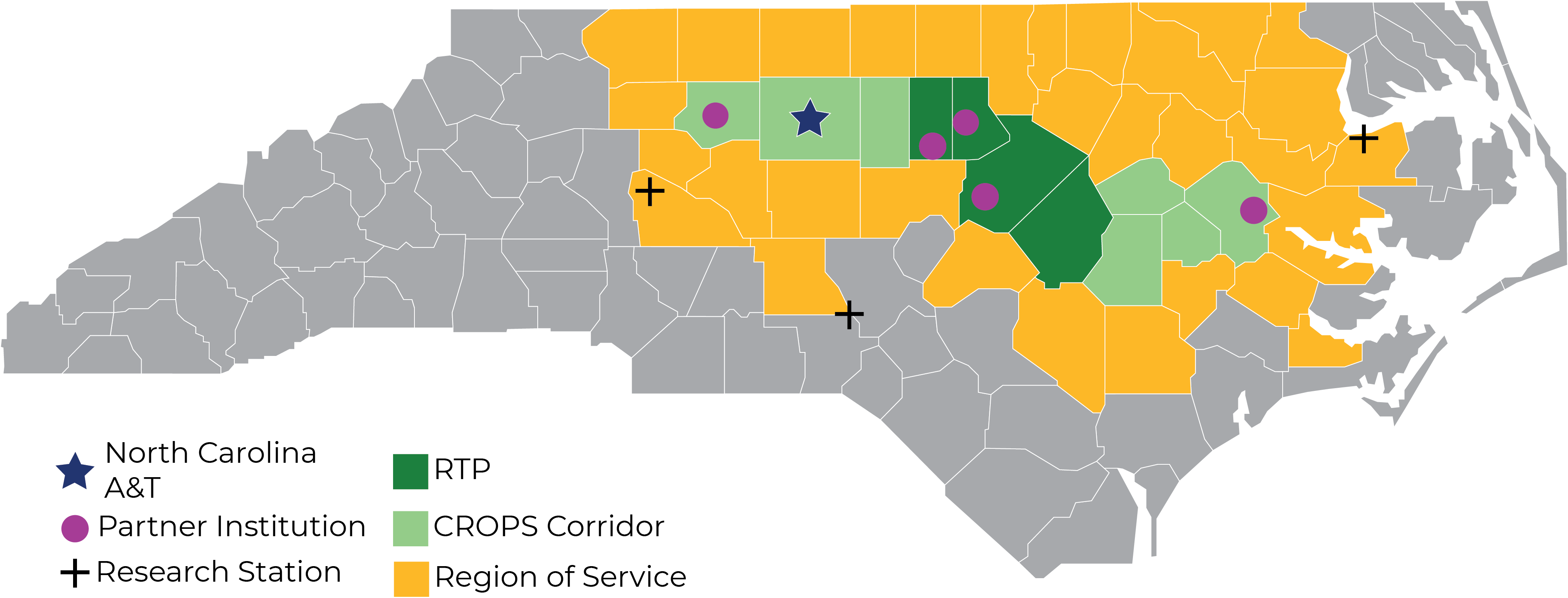N.C. universities partner on CROPS Project with $1M funding from the NSF

As North Carolina’s top economic driver, agriculture is practiced in every corner of the state. But, most of the research and technological innovations that could benefit and grow the $103 billion industry are housed within companies and universities in more urban areas of the state.
To address this gap in access, researchers at Wake Forest, along with nine other university, business, state agency, and research partners, have received a $1 million National Science Foundation (NSF) Regional Innovation Engines grant to develop a 42-county Agricultural Tech Innovation Corridor.
The project, called Climate-Responsive Opportunities in Plant Science (CROPS), is led by N.C. A&T and brings together researchers from Wake Forest, Duke University, East Carolina University, North Carolina State University and UNC. It also incorporates specialists and county agents from the N.C. Cooperative Extension Service, industry leader N.C. Biotechnology Center, the non-profit research institute RTI International, and the North Carolina Community College System.
“The challenges of farming are increasing with the changing climate in North Carolina, as both temperatures and frequency of severe storms are increasing. It is an important goal of CROPS to work with farmers to develop and apply new agricultural approaches and crop varieties that thrive in this environment that challenges crop success,” said Gloria Muday, a plant biology professor and Wake Forest’s project lead.

Photo credit: Lucia Strader/Duke University
The program will stress climate-smart techniques and ways to create climate resilience, and provide information about technologies to help agricultural operations thrive. Programs are free to participants.
“New farmers, underserved farmers and those with small-scale acreage need information to develop practices that protect the environment, produce the highest quality food, and provide reliable family income,” said Gregory Goins, CROPS project lead and associate dean for research at NC A&T’s College of Agriculture and Environmental Sciences. “Our team seeks to develop a plan to bring information from industry to farmers, particularly in underserved areas, that helps them mitigate climate impacts, lowers the barriers to market entry that they face, and boosts economic output.”
Wake Forest was a recipient earlier this year of a National Science Foundation Regional Innovation Engine Award in partnership with other institutions focused on regenerative medicine.
Content adapted with permission from NC A&T
Categories: Top Stories
Wake Forest News
336.758.5237
media@wfu.edu
Meet the News Team
Headlines
Wake Forest in the News
Wake Forest regularly appears in media outlets around the world.



